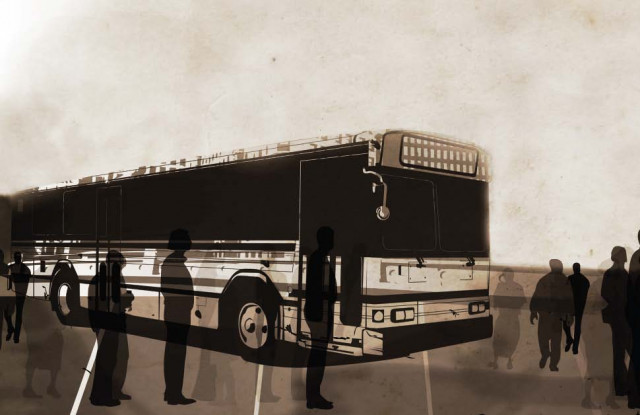Public transport using non-certified gas cylinders
Official says lack of quality control posing threat to public life.

Compressed natural gas (CNG) and liquefied petroleum gas (LPG) cylinders fitted in public transport vehicles are neither certified nor tested for sustainability, an official said.
Speaking at a seminar at the Khyber-Pakhtunkhwa Chamber of Commerce and Industry on Tuesday, National Productivity Organisation (NPO) CEO Khawaja Muhammad Yousaf termed these cylinders “moving bombs” that may explode any time and cause harm to property and humans.
According to a press release, Yousaf informed that these cylinders are presently manufactured locally without undergoing any quality control, posing great threat to public safety.
NPO will soon initiate a certification drive in the country to certify and test the quality and sustainability of gas cylinders, he explained, adding that only those cylinders certified by NPO will be allowed for use in public transport.
Speaking on the Prime Minister Quality Award (PMQA), for which the seminar was held, Yousaf said the first award in this category will be awarded by the prime minister on December 25. He said PMQA was the highest honour to be given to an organisation for business excellence.
“The basic objective of this award is to acknowledge and appreciate good practices of high achievers at national level,” he added.
Published in The Express Tribune, April 13th, 2011.


















COMMENTS
Comments are moderated and generally will be posted if they are on-topic and not abusive.
For more information, please see our Comments FAQ